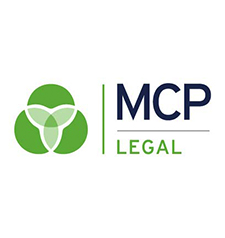
LEGAL ASPECTS OF BUYING, RENEWING, EXTENDING AND SELLING ANY FRANCHISE
Buying, extending, renewing, or selling any Franchise can be complicated.
A Franchisor should determine the best ownership to operate the business. This blog aims to address some prevalent issues relating to Franchising.
Franchising is covered as of, 1 January 2015, by the Franchising Code of Conduct (the “Code”), which is a part of the Australian Consumer Law. The code replaced the old regime and made the following amendments:-
– Introduces an obligation for parties to act in good faith in their dealings with one another;
– Introduces financial penalties and infringement notices for serious breaches of the Code;
– Requires franchisors to provide prospective franchisees with a short information sheet outlining the risks and rewards of franchising;
– Requires franchisors to provide transparency in marketing and to set up a marketing fund;
– Requires additional disclosure about the ability of the franchisor and a franchisee to sell online; and
– Prohibits franchisors from imposing significant capital expenditure except in limited circumstances.
These apply to all Franchise agreements entered into after 1 January 2015. There is also a set of obligations that are imposed on franchise agreements by the ACCC.
Disclosure
A Disclosure Statement must be provided by the Franchisor to the prospective Franchisee at least fourteen (14) days before entering into the agreement. It must contain details and experience of the Franchisor, litigation that the Franchisor is a party to, fees and costs, intellectual property, and goods and services you must acquire or provide.
A Franchisor must not make misleading or deceptive statements. The law provides remedies against such behaviour including a claim for damages and other remedies under the Australian Consumer Law.
Documentation
Any sale, renewal, extension and/or purchase should be detailed in writing in a Franchise Agreement identifying what is expected from each party, including what they must do, how much and when they must pay and what is being transferred. It may be necessary to have Contract completion subject to various conditions such as cooling off, finance, liquor licensing, and transfer of lease. This includes minimum trading levels over a period of time and/or the satisfaction of the Franchisee’s accountant with the financials of the Franchise.
Training and/or Operations Manual
Franchisors generally provide manuals to assist with the operation, management and training. These documents must be consistent with the Franchise Agreement and should be a useful resource for all parties.
What is being transferred?
Components of a Franchise usually include names, goodwill, premises (lease or ownership), equipment, machinery and fixed assets, stock, current orders, supply agreements, intellectual property, and licenses. The Franchisor must be able to guarantee the transfer of the ownership of all components to the Franchisee. When negotiating a price for a Franchise, consideration of the plant and equipment, location of premises, goodwill and stock are vital. It may be necessary to seek an independent valuation of the business.
Fees
A Franchise may consist of various fees. These fees may include a royalty, sign on/establishment, marketing, advertising, training, management and software licence fee.
Industry Requirements
It is important to ensure a Franchisee is aware of industry and general requirements affecting the Franchise. Appropriate industry bodies, existing Franchisors or the local council may be helpful in obtaining additional information.
Franchise Territory
It must be determined prior to commencement of the Franchise whether the Franchisee is granted an exclusive or non-exclusive territory, be limited to a particular site, or may operate a business which is substantially the same in a certain defined area.
Term and Termination of a Franchise Agreement
The term of a Franchise Agreement will vary from one Franchise to another. There may also be an option to renew the arrangement for a further term. This will generally be addressed in the Franchise Agreement. Termination may be by either agreement or assignment (subject to Franchisor consent). The arrangement may also be terminated if the Franchisee no longer holds relevant licences or permits on expiration of the term of the Agreement.
Remedies
The Code provides a mediation process between the parties if there is a dispute. Due to the time and cost involved, litigation should be seen as a last resort. Apart from contractual remedies available to both the Franchisor and Franchisee, various provisions of the Code and Trade Practices Act prescribe various remedies such as injunction or making orders varying or refusing to enforce the agreement and list several offences.
The ACCC also has an investigations team that can become involved where there is a breach of the code or the Competition and Consumer Act 2010. They will only investigate if there is more to the dispute than something contractual in nature such as alleged fraud or misconduct.
Conclusion
Buying, extending, renewing or selling a Franchise is exciting yet inherently involves risk. Whether as a buyer or seller, it is strongly recommended that advisers including accountants and lawyers are involved in the process, to ensure rights and obligations are respectively protected and honoured.
For more information, contact:
e: lawyers@mcpgroup.com.au
p: (03) 9620 2001
w: www.mcplegal.com.au